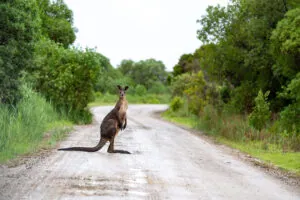‘Local trials autonomous vehicles in Australia crucial’

The Victorian Farmers Federation (VFF) calls on state and federal governments in Australia to incentivise and streamline the processes for automated vehicle trials. “Local trials will be crucial in informing Australia’s transition to autonomous vehicles”, the VFF says.
The VFF’s new Autonomous Vehicle Road Policy has been given the green light at a recent Policy Council. The policy calls for a proactive and nationally consistent reform agenda to support the development and adoption of autonomous vehicle technology.
“With John Deere recently announcing that the first commercially available autonomous tractor for large-scale farming operations will be released later this year, it is crucial Australia’s transport regulation keeps pace with technological advancement”, the VFF says.
The VFF thinks autonomous tractors will be highly popular, especially given the current skills shortage. “That’s why we’re working to remove any barriers for uptake”, the Federation points out.
There have been 32 automated vehicle trials in Australia, between 2016 and 2020, but the VFF is concerned that the scale of trials currently conducted in Australia is less than in many comparative countries.
Australia’s unique conditions
Local trials are important because they ensure the technology will be safe in Australia’s unique conditions, the Federation emphasises. “For example, trials have revealed that autonomous vehicles struggle to register kangaroos, open landscapes with few markers and hilly environments.”

Australia has a code of practice, that has been developed for on-farm use, but no trials have been conducted in Australia for moving autonomous agricultural machinery on roads. “Noting that autonomous agricultural machinery will likely be adopted earlier than general autonomous vehicle technologies, the VFF is calling for jurisdictions to develop guidance in the transition period to enable autonomous machinery to be manually moved on the road. This has to ensure that adoption of new technologies is not inhibited”, according to the VFF
The VFF says that the code of practice has been developed for field operations. “This should negate any need to special permits infield. We need governments to work with us to enable the movement of these vehicles between fields and farms”, the Federation explains.
Specific requirements
Significant work will need to be done to enable autonomous vehicles on the road, the VFF says. “Autonomous vehicles will have specific digital and physical infrastructure requirements, including connectivity but also simple things line markers and consistent speed signage.”
The Office of Future Transport Technology is currently working with Austroads to develop guidance on preparing infrastructure for autonomous vehicles within an integrated transport and land use planning framework.
Australia’s transition to autonomous vehicles will also require significant regulatory reform. “The concept that the driver is in control of the vehicle underpins much of our current road regulation”, The Federation says. “A 2016 review found more than 700 barriers to the adoption of automated vehicles in state, territory and Commonwealth law.”
Grain Producers Australia, the Society of Precision Agriculture (SPAA) and the Tractor and Machinery Association worked together to develop the ‘Code of Practice for Agricultural Mobile Field Machinery with Autonomous Functions in Australia’.
Join 17,000+ subscribers
Subscribe to our newsletter to stay updated about all the need-to-know content in the agricultural sector, two times a week.



